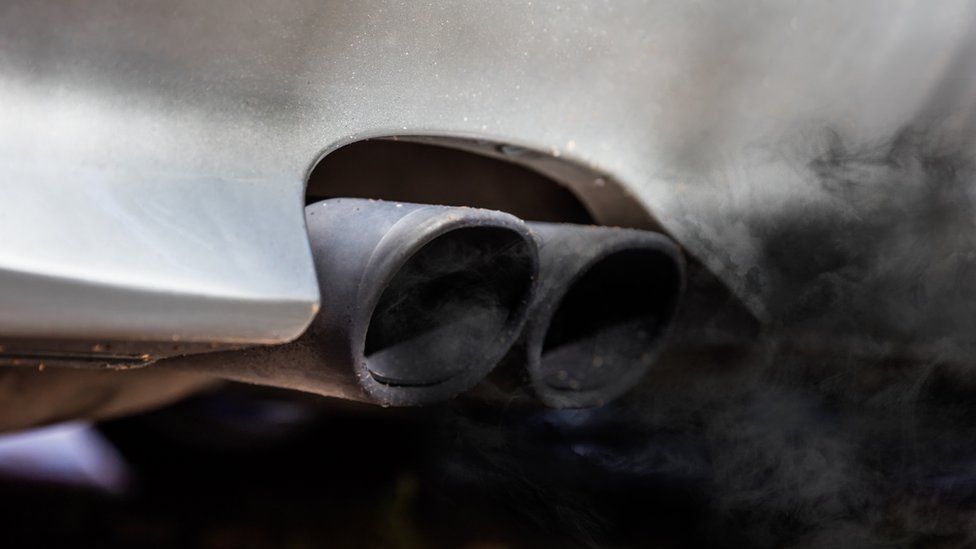No plan for petrol and diesel ban in Wales, says Plaid AM
- Published

There is "no plan" by the Welsh Government to prepare for a diesel and petrol car-free future, a Plaid Cymru AM has said.
New petrol and diesel cars will be outlawed by UK government from 2040.
Simon Thomas said Welsh ministers were "off the pace" in developing alternatives such as public transport and cycling to deal with the change.
The Welsh Government said it was looking at measures to support phasing out petrol and diesel vehicles.
Road tax, fuel duty and vehicle standards are handled by the UK government, but roads and policy around cycling and walking are in the Welsh Government's remit.
Plaid Cymru environment spokesman Mr Thomas told BBC One's Sunday Politics Wales programme: "You go to a city like Copenhagen and places in France, and even Paris now, which has had a huge diesel pollution problem, and they have started to change and invert that process.
"So, pedestrian, the cyclist, the human being comes first in our city-scape and the car comes second and public transport becomes part of that. We are way off the pace."
In Denmark's capital, Copenhagen, more than half the people cycle to work on bike lanes that span more than 200 miles.
Klaus Bondam, a former member of the city council's administration, said it was the result of almost 100 years of investment.
"I would suggest the Welsh politicians to stand up and say 'we would like this development to start, we would like it to continue, and we would like to hand it on to the next generation'," he said.
Welsh Conservatives' environment spokesman David Melding said Wales should have more ambition in offering alternatives to the car.
"We don't want to be completely car-free. Some access is going to be required," he said.
"But it's used at the moment as the first option, and that we need to tackle."
The Welsh Government passed legislation in 2013 called the Active Travel Act, which placed a legal duty on councils to continuously improve routes for cyclists and pedestrians.
Dr Justin Spinney, from Cardiff University's School of Geography and Planning, said the act showed "a real commitment to more liveable sustainable places".
However, he said trying to encourage people out of their cars was an "uphill-struggle" because the car was "the benchmark of comfort, convenience and sociability".
A Welsh Government spokesman said: "We are liaising with the UK government on the development of its low carbon road transport strategy and how its commitment to invest more money in low carbon vehicles will benefit Wales."
He added there were plans for a network of public electric charging points along or near Wales' trunk roads and £31m was allocated last year to support councilsto improve walking and cycling infrastructure, as well as for walking and cycling training.
- Sunday Politics Wales, BBC One Wales, Sunday 25 February 11:00 GMT
- Published5 December 2017
- Published21 February 2018
- Published26 July 2017